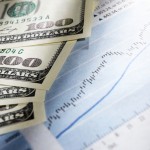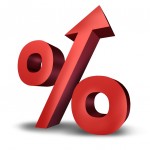I want to talk about one of the most powerful forces on earth. Not military force, not some new energy source. These pale in comparison. I'm talking about the bonus and the renewing-client factor.
A ‘crisis', whether real or manufactured by the media, in the first part of the year generally lasts longer. But there are strong seasonal patterns, track records, in many well-known stocks and the markets in general, in the fall. These track records of stock gains are likely a reflection of strong institutional accumulation during the last three months of the year.
Why would institutions be more inclined towards stock purchases in the latter part of the year than at other times? Simple. Year-end bonuses and concerns about getting big clients to renew.
There are more than 7,000 mutual funds. Around 7 percent of them fail each year. Most mutual funds do not make downside bets. They can't short stock. They only bet on the upside. And you can bet the 93% that survived the last 12 months are focused on the next 3.
There are around 10,000 hedge funds. Together, that is a lot of money managers thinking about the year-end bonus or trying to keep the large clients who will be looking closely at the past year's results.
The ‘Internet Crash'? It lasted all year because it started in the spring of 2000. The 1987 and 2008 crashes though rebounded through the end of the year because they occurred in September/October. As soon as the selling subsided, there were thousands of money managers seeing good quality stocks at value prices, and a chance to spice up their returns for the year.
That little semiconductor stock everyone is talking about? Institutions will play those stocks earlier in the year. But if they are looking to juice up returns at the end of the year, they go for the more reliable, well known top quality stocks, especially the companies that sell products to consumers (due to back-to-school and holiday sales factors).
This current government shutdown ‘crisis'? The institutional money managers are aware that the United States Government has shut down 17 times since 1977, and the longest one lasted only 21 days. They are more likely to be worried about their year-end results right now than the shutdown (although, the upcoming debt-limit ceiling throws an interesting twist, and possible second punch, into the picture).
Watch the top-name stocks. Disney is a good example. DIS has gained an average 8.1% through the rest of the year, with gains, often double-digit gains, in 4 out of every 5 years:
Stop yelling at the TV and start going through the charts of well-known stocks. This is the time of year to spice up your returns. In today's newsletter, I analyze a high probability trade on a company with huge potential.
Of course, there's much more you need to know and many more stocks you can capitalize upon each and every day. To find out more, type in www.markettamer.com/seasonal-forecaster
By Gregg Harris, MarketTamer Chief Technical Strategist
Copyright (C) 2013 Stock & Options Training LLC
Unless indicated otherwise, at the time of this writing, the author has no positions in any of the above-mentioned securities.
Gregg Harris is the Chief Technical Strategist at MarketTamer.com with extensive experience in the financial sector.
Gregg started out as an Engineer and brings a rigorous thinking to his financial research. Gregg's passion for finance resulted in the creation of a real-time quote system and his work has been featured nationally in publications, such as the Investment Guide magazine.
As an avid researcher, Gregg concentrates on leveraging what institutional and big money players are doing to move the market and create seasonal trend patterns. Using custom research tools, Gregg identifies stocks that are optimal for stock and options traders to exploit these trends and find the tailwinds that can propel stocks to levels that are hidden to the average trader.
Related Posts
Also on Market Tamer…
Follow Us on Facebook

 Should You Buy Walmart Stock With $1,000 and Hold Forever?
Should You Buy Walmart Stock With $1,000 and Hold Forever?



